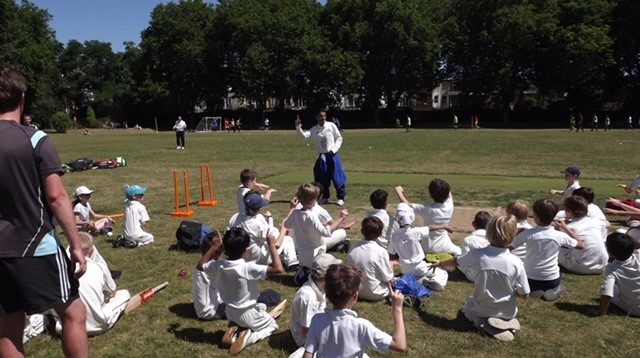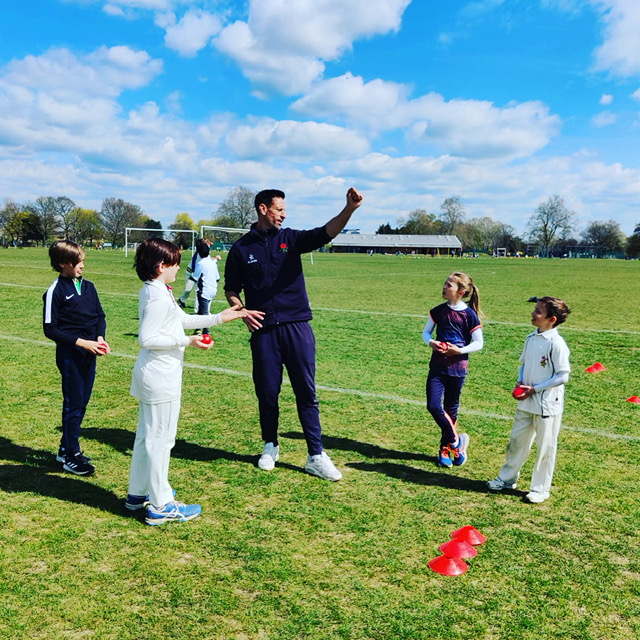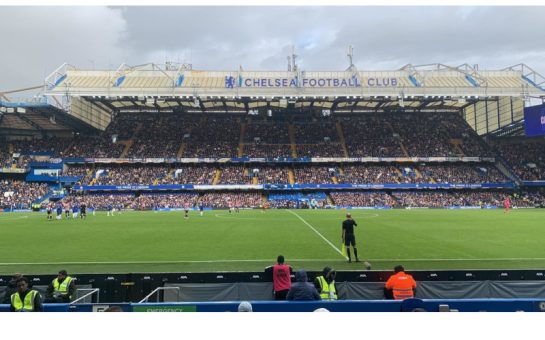Rohan Kapadia, director of cricket at Roehampton and Fulham Juniors, knows how Azeem Rafiq feels.
A British Asian and one-time club cricketer in Middlesex in his early-20s, Kapadia, 39, learned first-hand that racism is ingrained into cricket.
He said: “I hated the drinking culture. I hated the nicknames I got given.
“It wasn’t a welcoming environment, at even the higher levels of club cricket. All of my friends who played first-class cricket have similar stories.
“Sport takes the really rubbish bits of society and for some reason we allow it to happen.
“If you don’t drink, would you join a sports club? I don’t think I would.”
The relentless, unchallenged discrimination motivated Kapadia to set up his own junior cricket club, Fulham CC, in 2016.
Despite residing in a traditionally white, high-income area of south west London, the club, which merged with Roehampton Cricket Club last year, prides itself on its diversity.
It started last season with 14 coaches with Asian heritage, eight from a black background and three women.
The club holds free camps, and children walk from as far as White City and Shepherd’s Bush to spend their Saturday mornings playing cricket.
It runs sessions at south west London state schools, which Kapadia estimates consist of 80% BAME children and there is even a refugee program targeting Afghans in the area.

Photo credit: Roehampton and Fulham Cricket Club
Kapadia formed the club believing meaningful change was impossible through the existing clubs in the area.
He said: “There are other clubs in south west London who have got a huge amount of resources to go out into the community to do what we do.
“They’ve got huge junior sections, yet they don’t do that stuff. They’re very white, middle-class, upper-class clubs.”
He was, therefore, unsurprised by Rafiq’s allegations that Yorkshire County Cricket Club is institutionally racist.
Rafiq spoke in a DCMS select committee earlier this month, detailing the name-calling, hazing and neglect he was subject to.
In its aftermath, multiple south west London cricket clubs committed to embracing diversity.
Rafiq has his flaws, as historic antisemitic social media posts and accusations of sexual harassment display but, as he maintained throughout the investigation, the issue is not about individuals.
Kapadia’s experiences, and those of current and former county players support that, including Roehampton and Fulham coach Zoheb Sharif, who alleged he suffered racist abuse while at Essex.
Nevertheless, cricket, as a sport with an almost unmatched global reverence, has a unique opportunity to unite people from every background.
Kapadia said: “It’s probably the only sport that can cross every ethnic divide, but you’ve got to show that and make that effort.
“Azeem has been so brave. He’s opened up the doors for a lot of people to talk.
“We’ve now got to look at solutions once everyone’s had time to breathe.”
He has talked with ex-England fast bowler Sajid Mahmood, a fellow director at Roehampton and Fulham, about what can be done at the grassroots.
Kapadia said: “Even in a club like ours, which is in an affluent area of London, we’re really wanting to speak to the children about all this.
“Parents vote with their feet. They’ll find other sports which are doing more for other communities.”

Yet, there is only so much Roehampton and Fulham can achieve.
Last Monday, the England and Wales Cricket Board (ECB) revealed that 33% of recreational players are from an ethnically diverse background, but the equivalent figure at first-class county level is roughly 10%.
Clearly, cricket attracts non-white players, but fails to foster an environment that allows them to progress.
Kapadia insisted: “There are really good people in the game who want to make positive change, but it needs to come from the top.
“Look at county boards, look at cricket board committees, it’s very stuffy and white middle-aged men.
“Let’s get women involved. Let’s get Asian communities involved. Let’s get the black community more involved in the game.”
Last month, a Daily Mail report revealed that 8.6% of county boardroom directors were from a BAME background.
Elsewhere, only two of the ECB’s 12 board members were non-white, and both were in non-executive positions.
The ECB published an action plan today which includes pledges to create a welcoming environment for all and, through an Equity, Diversity, and Inclusion Action Plan, improve minority representation at board level.
Prejudice is not restricted to cricket, as Kapadia’s experience applying for a prep school teaching job show.
He said: “I applied with my own CV for a junior role that I should have walked into and didn’t even get a call back.
“I then changed the name changed the photo, pretty much same qualifications and got a call to say let’s skip the first round and come straight through to the second round.
“I’ve faced these situations. I’ve sat in front of disciplinary meetings with chief executives, I’ve been called the p-word by people.”
Although cricket’s racism problem might not be exceptional, the sport, amid such a torrid episode, can still spearhead attacks on prejudice.
Kapadia said: “There are some hugely amazing friendships you can make out of the game, a huge amount of community work you can do.
“Cricket can be a huge force for positive change, just look at our club, look at the community we’ve built.
“And we shouldn’t forget, it’s a game just to have fun with.”
Featured Image Credit: Roehampton and Fulham Cricket Club




